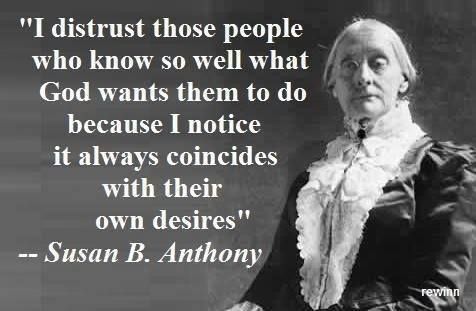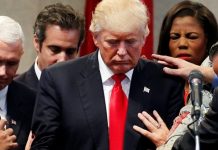A Liberal God? Depending on who you ask, liberals are supposed to be atheists, and conservatives are more comfortable with the idea of God. Conservatives certainly don’t own God, but some try, and do give him a certain temperament and personality. 
I think there is a widely accepted liberal God; it’s just that liberals aren’t as inclined to go on about how they know “him,” and many would object to hanging a persona, or gender, on the title. I really think liberals often have enough reverence for whatever started all this, that they loathe to put a face on God that is not likely to be accurate.
Whoever or whatever the creator spirit is, it is obviously still in charge of everything, and a lot of liberals think it’s enough to recognize that. While conservatives pay special homage to one Biblical source of holiness, and a worldview that comes from that, the liberal world has science, math, biology, and the humanities as a much more broad-based representation of what, for them, is the holiness and wonder of creation.
Conservative faith as a backdrop….
Most in this country, liberal or conservative, are raised with a traditional God concept, and most of the time it is Christian and Protestant. We are familiar with the ancient Jewish cosmology, and especially so if raised from childhood hearing of God and Jesus, Adam and Eve, and Moses and the 10 Commandments.
These stories often revolve around real people for us. God talking law to Moses, in a rare moment with the masses fornicating and idolizing at the base of the Mount, seems almost reasonable. Judas betraying Christ for silver is the stuff of humanity. These human experiences enliven Judeo/Christian spirituality for us and give us incentive and orientation. And the humanity in religion makes it social fodder as well as anything else it is.
The social use perpetuates itself and gives us a framework for culture. We mirror the ancient social concepts from Israel, as a worldview, despite the passing of a couple of thousand years in which we redefined much of how we see the rest of the universe. That defines the old way, the safe way, for us, the conservative way.
Religion in this country breaks into 2 fairly distinct groups, and those are a fundamentalist-flavored group, and a more esoteric one. They roughly follow stark literalism or nuanced symbolism as paths to spirituality. Understanding these spiritual schools is a lot like understanding political worldview.
In politics we tend to lean toward a conservative, more fundamentalist worldview, or, we favor an esoteric, nuanced and more complex worldview we call “liberal” or “progressive”. This is considerable wiggle room, as more conservative religious leaders admit things like evolution, but the dynamic is consistent. Although not perfect correlates, as a worldview basis there is utility in understanding how the religious schools and the political schools tend to mirror one another. It helps explain better than positions on taxation, what it means to be liberal or conservative.
What’s in it for me?
It is important to understand that when one reduces a complex world to its fundamentals to create a worldview, most often, “me” is elevated by the vision. People don’t tend to leave themselves out of something like that. In any group of concerns, the small “me” will be there — it is just a matter of choice how much else is there with it. Accordingly, fundamentalist religions, stripped down to their bare essentials as they are, often are intensely salvation-oriented, and center on an afterlife for the believer. They lean on the rules to attain this afterlife, hence the importance of literalism, and everything else is optional.
This is true whether the religion is Christian or Muslim — the fundamentalist aim is satisfying the rules by which “me” gets elevated, generally on the way to an afterlife. On its own vision of authority, fundamentalism tends to assume it knows what is important and everything for man and country becomes about the short list of rules to get to heaven. There, we will hopefully find everlasting life, our deceased families, or rooms full of virgins.
So strong is this inclination to validate afterlife concerns that some religions do not recognize more esoteric ones as true religions. I was raised Southern Baptist, and was reminded frequently how Unitarian/Universalists never saw a liturgy they didn’t like and so actually believed none of them. The no-brainer was Unitarians would not be “saved” in the end. Same for Catholics, who from the view of some hold the church above Jesus. I heard from my Baptist friends if anyone every accused me of being Catholic I should say I was “a Christian, not a Catholic.”
Religion need not conflict with science…
In some very important ways, the more “liberal” esoteric religions and God-concepts actually embrace “creation” more seamlessly than the fundies. In these more esoteric faiths, there is less conflict between science and religion — in fact often NO conflict. Science simply tells us what is, and how, and need not defend itself against a jealous deity, more comfortable above a church than in a lab. This is because, for many, the liberal worldview is in presumptive, evidenced support of whatever obviously created us, anyway. Science in these faiths does not stand to steal any of God’s thunder, quite the opposite. In fact, the liberal creator “God” in many ways is tremendously larger, more ever-present, and less in conflict with, everything. The liberal’s God is often so accepted as truth itself that there is little reason to utter the name of God to describe “his” works. It is an old theme propagated by the ancients, that we might take caution uttering the name of God, lest we lose sight. In that way, the liberal trait of avoiding the name-dropping and the Bible thumping strikes many liberals as faith in the real, not the lack of it.
Liberal politics runs in people who see no downside to using psychology, science, evolution, and humanism as legitimate resources to understand our world. They tend toward more spiritual humility, less Bible thumping, and often have real value for the diversity of other faiths and cultures, even though they are often tired of the fundie hubris and assumptions. People of this ilk might actually call themselves atheist but stand in wonder of a created world far more dynamic, ever-changing, magical and fascinating than their brothers who “believe”. They might simply prefer to avoid personifying God as a way to claim they know “him”. Their faith in goodness can even be stronger, and their paranoia and xenophobia conspicuously less obvious than it is in conservatives. This is true of liberal Christians even if they retain a love of Christ and a literal belief in salvation — the increased complexity of the liberal worldview simply works to take the demonization out of a lot of disciplines.
How religion and politics align on worldview, based on our concept of “self”…
In politics or theology, this spiritual worldview-based model of what it means to be liberal or conservative is probably a more accurate explanation than one would obtain trying to use the symptoms and issue-statements most people use to define the right and left of politics.
Worldview explains why conservatives, as if to confuse us, say they are less-government folks — but leave out the militarism, as well as the social engineering they prefer to exact at the state and local levels. They say they are liberty minded but they close women’s clinics, launch drug wars, create dry counties, and blue laws. They swell and privatize incarceration for nonviolent crimes, and mandate forced pregnancy to term — hardly personal freedom positions. Understanding their actions better can happen by understanding fundamentalism has a particular worldview basis, an enlarged idea of its own authority, and a “me” right in the middle of it, and much of their behavior issues from that, more than their stated religious or constitutional positions. Often it IS just liberty they want — the liberty to enforce their religious worldview on us all. That happens because there is a big “me” right in the middle of fundamentalism.
To understand conservatism and liberalism you can almost sum it up as conservatism is a more fundamentalist, smaller concept-of-self ideology, both spiritually and politically. My house, my family, my taxes, my religion, my way or the highway is the engine of conservative motivation, and it works for them, because of their worldview. As for being liberal, often the liberal idea of concept-of-self is much broader, even too diffuse by conservative standards, because there is not enough “me” in it. You don’t get to be a tree-hugger or a whale lover by having a small concept-of-self. We know what Jesus would say about feeding the poor and healing the sick. Wonder what he would say about the Spotted Owl’s right to exist in the face of logging old-growth forests on public land, versus a logger’s right to make a buck?
Edited by SS






